DENTAL CLEANING
There are two types of dental cleaning, or tooth cleaning. There is cleaning your teeth at home and there is a professional dental cleaning that takes place in your dentist’s office.
PROFESSIONAL TEETH CLEANING
At the very least, we should all visit the dentist twice a year for a professional teeth cleaning treatment to prevent the excessive build-up of plaque. Left untreated, plaque can lead to tooth decay and diseased gums. People often neglect the simple chore of visiting their dentist for a good teeth cleaning.
The term, plaque, may seem innocuous enough but when you take into account what it really is, a biofilm built up from a thousand different species of colonizing bacteria trying to attach themselves to your teeth’s surface, this should send you running to the dentist as often as possible for regular tooth cleaning! Inefficient cleaning of teeth can result in a build-up of plaque that turns into an unsightly yellow substance called calculus or tartar around the teeth near the gum line. Calculus is visible in the mirror without using dental tools and is a sure sign that cleaning teeth is long overdue.
TOOTH CLEANING PROCEDURES
A professional dental cleaning involves scaling, polishing and root planing.
- Scaling – This is the removal of plaque and tartar from the surface of the teeth using a variety of techniques. Traditionally, this phase of teeth cleaning has been done manually by a hygienist. Now there are electric scalers that can tackle the tooth cleaning job more thoroughly and in less time.
- Polishing – Tooth polishing is a teeth cleaning procedure that involves smoothing the tooth’s surface to make it harder for plaque-forming organisms to accumulate.
- Root planing – This is a specialized type of tooth cleaning that involves scaling the root of the tooth. The root is made of a special enamel called cementum. Cementum is softer than enamel and therefore more vulnerable to plaque-forming and inflammatory agents.
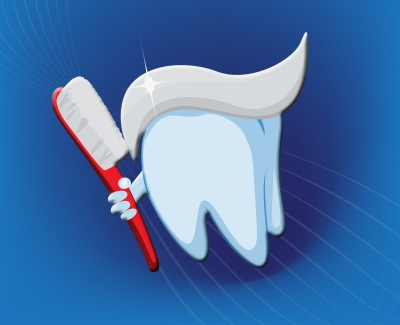
CLEANING YOUR OWN TEETH
The more effective we are at cleaning our own teeth, the easiest it will be when we go to the dentist’s office for a teeth cleaning. Although we have been cleaning our teeth since toddlerhood, it never hurts to go over a few simple principles for efficient teeth cleaning at home:
- Concentrate on the nooks and crannies, the tiny spaces in between teeth and close to the gums to remove all plaque and old food.
- Brush for at least two minutes, twice a day, in the morning and at night. Cleaning your teeth at least this frequently will help keep plaque at bay.
Visiting your dentist twice a year for a professional dental cleaning and cleaning your own teeth according to the principles above should protect your teeth and gums and keep you smiling brightly from childhood to well into your retirement.
Does a teeth cleaning hurt?
Whether you visit your dentist regularly or haven’t been in the dental chair for a while, teeth cleanings can cause anxiety. But they shouldn’t. Unlike other dental procedures, the discomfort associated with teeth cleanings is minimal. Let’s take a look at what’s involved with a typical teeth cleaning procedure.
Teeth cleaning steps
A typical Dr. Dental teeth-cleaning procedure includes:
- Preliminary exam. A dentists or dental hygienist will examine problem areas, identify cavities, and more.
- Plaque and tartar removal. For many patients, this is the part of a teeth cleaning that is associated with pain. However, our highly trained dental care professionals simply scrape the plaque and tartar from your teeth. While the scraping sound may be unpleasant at times, this part of a teeth cleaning doesn’t cause pain.
- Brush & floss. A teeth cleaning also includes two things that regularly happen at home: brushing and flossing. Our team uses a rotating brush to clean and polish your teeth, and also perform a comprehensive flossing. If you haven’t flossed in a while or your gums are inflamed, there may be a small amount of blood present – but pain is minimal to non-existent.
- Fluoride treatment and rinse. The final steps involve a fluoride treatment (to help prevent plaque buildup) and a rinse.
And that’s it! As you can see, a teeth cleaning doesn’t hurt; it’s designed to improve teeth and gum health, and prevent future plaque and cavity formation.
So, does a teeth cleaning hurt? The short answer is no. The oral healthcare professionals at Dr. Dental provide comprehensive teeth cleanings with no (or very little) patient discomfort.
Visit Dr. Dental today for a teeth cleaning. If you haven’t been to Dr. Dental yet, take advantage of our New Patient Cleaning special!
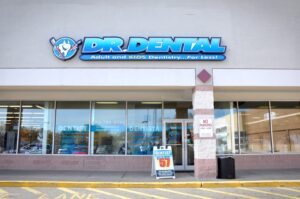
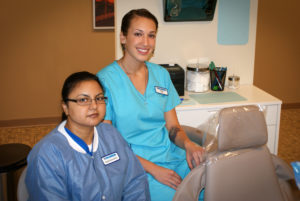
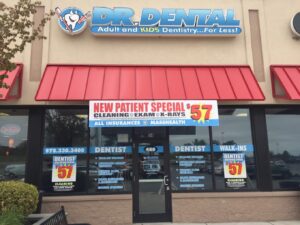
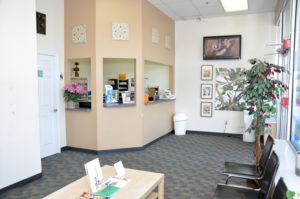

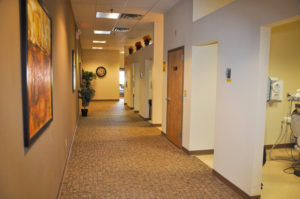
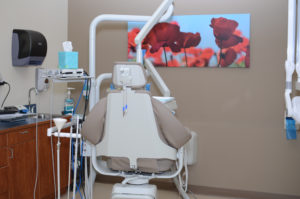
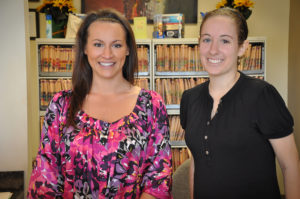
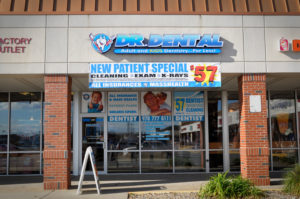
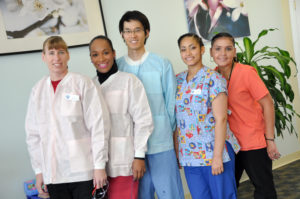
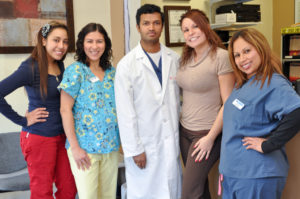
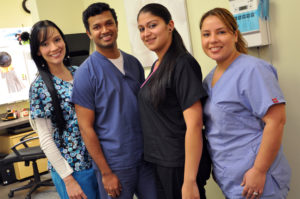
Comments are closed.